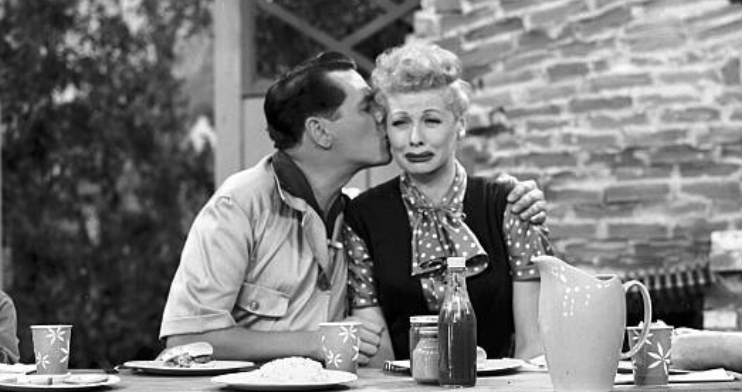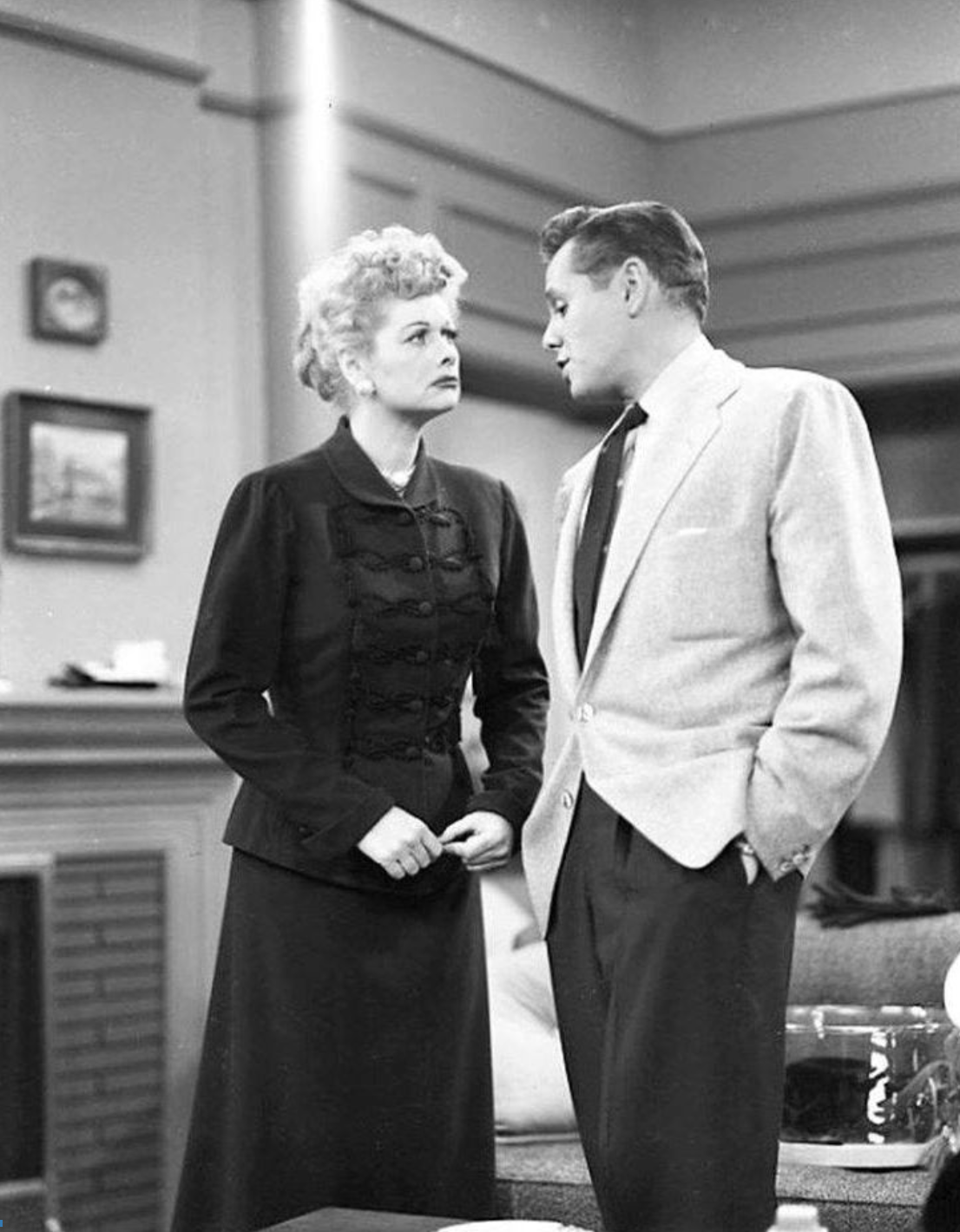
Ricky Ricardo, the fiery Cuban bandleader and devoted husband on “I Love Lucy,” was a groundbreaking character for 1950s television. He embodied a fascinating duality, representing both traditional patriarchal values and a more modern, loving approach to his marriage and family life. His portrayal not only provided endless comedic fodder but also subtly reflected the evolving landscape of cultural integration in America and the complexities of a passionate, cross-cultural relationship.
Ricky was undoubtedly the head of the Ricardo household, a figure of authority who often laid down the law, especially when it came to Lucy’s outlandish schemes. He held traditional views on a wife’s role, often expressing his desire for Lucy to be more domestic and less involved in his professional life. His famous exasperated cry of “Lucy! I’m home!” often preceded his attempts to maintain order amidst the chaos she inevitably created. This sternness, however, was always tempered by a deep and abiding love for his wife and later, his son, Little Ricky.
Crucially, Ricky’s character also broke ground by portraying a successful and assertive Cuban immigrant on mainstream American television. At a time when representation of diverse cultures was limited, Desi Arnaz’s charismatic performance brought a vibrant and authentic portrayal of Cuban identity into living rooms across the nation. While the humor often stemmed from cultural misunderstandings, Ricky was consistently depicted as intelligent, talented, and a respected member of his community. His success as a bandleader challenged stereotypical portrayals and subtly promoted the idea of cultural integration.
The dynamic between Ricky and Lucy was the undeniable heart of “I Love Lucy.” Their relationship was a rollercoaster of passionate arguments, hilarious misunderstandings, and ultimately, heartfelt reconciliations. Ricky’s fiery Latin temper often clashed with Lucy’s impulsive nature and relentless desire for adventure. Their “love-hate-make-up” cycle became a comedic trademark of the show. While Ricky would often become infuriated by Lucy’s antics, his love for her always shone through. He consistently forgave her mistakes, often with a sigh and a loving embrace, highlighting a deeper emotional connection that transcended cultural differences and traditional expectations of marital roles.
Ricky’s reactions to Lucy’s schemes, ranging from explosive frustration to grudging amusement, were a masterclass in comedic acting by Desi Arnaz. He portrayed a man who was both exasperated by his wife’s antics and utterly devoted to her. This push-and-pull dynamic created a unique tension that fueled much of the show’s humor. Yet, beneath the surface of their arguments, there was a clear foundation of respect and genuine affection. Ricky admired Lucy’s spirit, even when it led to trouble, and Lucy, despite her sometimes exasperating behavior, clearly adored her husband.

In many ways, Ricky Ricardo represented a bridge between traditional values and a more modern understanding of marriage. While he held certain expectations of his wife, his deep love and eventual acceptance of her sometimes unconventional ways showcased a willingness to adapt and compromise. He was a strong, capable man who was not afraid to show his vulnerability and affection for his family. This blend of strength and tenderness, tradition and a subtle breaking of those traditions within the context of his loving relationship with Lucy, is what made Ricky Ricardo such a compelling and enduring character, contributing significantly to the timeless appeal of “I Love Lucy.”
